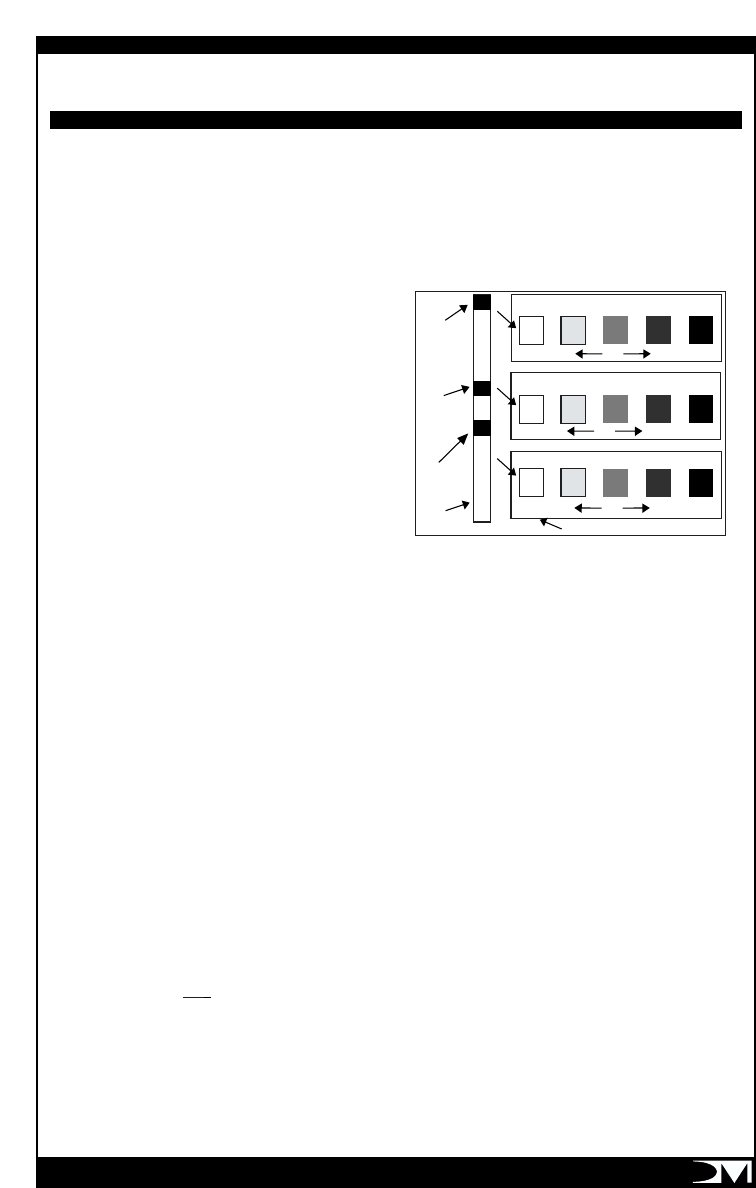
PAGE 15
Water treatment is an important factor in the
enjoyment of your Voyager. Proper water sanitation
is essential for the health of your friends, family as
well as permitting years of trouble-free use of your
spa. The most common water chemistry problems
that can damage your spa liner are:
1. Improper pH maintenance. pH balance is critical
to proper water maintenance. Too low of a pH
level will result in excessive wrinkles and
damage of the vinyl liner as well as corrosion in
the Therapy Module.
2. Not pre-dissolving chemicals before adding to
the water.
3. Use of improper chemicals.
4. Over chlorinization. Sodium dichlor is the
recommended type of sanitizer. Sodium dichlor
dissolves easily and has a neutral pH, which
minimizes the effect that the addition of a
sanitizer has on the pH balance. Trichlor
compounds are not recommended because
they have a very low pH, are very potent and
difficult to dissolve.
BALANCING YOUR SPA WATER
The instructions below will assist you with balancing
the spa water for the first time. You will need the
following items to balance your spa water.
1. “3-WAY TEST STRIPS”
2. “PH-UP” and “PH-DOWN” for pH control.
3. “MINERAL SURFACE PROTECTOR” for Calcium
and Scale control.
4. “METAL INHIBITOR” for breakdown of mineral
deposits.
5. “POTASSIUM PEROXY MONOSULFATE” for
shock treatment.
6. “BROMINE” or CHLORINE” for sanitizing the spa
water.
Please read “WATER MAINTENANCE” then follow
these easy steps:
1. Fill your spa until the water level is 1” above the
highest jet. It is
NOT advisable to use softened
water in your spa, as it may be corrosive.
2. Add a 1/2 pint of Spa Metal Inhibitor to prevent
iron or copper deposits from staining the finish
of your spa. If your water is known to contain
high concentrations of these metals it may
be necessary to add an additional quantity of
Spa Metal Inhibitor.
3. Use a 3-Way Spa Water Test Strip or test kit to
measure the pH and Alkalinity of your water. The
following instructions utilize test strips for testing.
Immerse the test strip in the spa water, following
the instructions on the test strip container label.
Compare the test strip to the label to determine
the condition of the spa water.
4. If the Alkalinity is not within the acceptable range
(80 to 120 ppm) it should be adjusted first. If it
is low, raise the alkalinity by adding PH-UP 1 oz.
at a time, retesting until the alkalinity reaches
120 ppm. If the alkalinity is high, it should be
lowered by using PH-DOWN 1 oz. at a time.
5. After the alkalinity is properly adjusted, the pH is
next. If the pH is above 7.8, use PH-DOWN
(1 oz. at a time) to lower it to the acceptable
range. If the pH is below 7.2, add PH-UP to bring
it into the acceptable range. It is extremely
important to NEVER allow the pH of your spa
water to be under 7.0, as this can severely
damage your equipment and will void the
warranty.
6. Add Sanitizer, either chlorine or bromine. For
Chlorine: Follow the directions on the bottle.
Chlorine dissolves rapidly; you should get a
reading on the test strip within minutes of
application. For Bromine: Follow the directions
on your floating brominator. It is necessary to
add sodium bromine only when the spa is being
filled. Bromine tablets erode slowly, and it may
take several hours before you will get a reading
on the test strip. It may be necessary to adjust
the floating brominator.
7. To properly maintain the chemical balance of
your spa, follow the 3 day a week program
outlined in page 12.
WATER MAINTENANCE
BROMINE
TEST PAD
ALKALINITY
TEST PAD
pH TEST
PAD
TEST
STRIP
LABEL ON TEST STRIP CONTAINER
OK
VERY LOW
HIGH
HIGH
HIGH VERY HIGH
VERY LOW
VERY LOW
6.4 6.8
ppm PH (PAD NEAREST)
ppm TOTAL ALKALINITY (MIDDLE PAD)
ppm TOTAL BROMINE (END PAD)
7. 2 7.6 8.4
080
120 180 240
01
3510
OK
OK
BALANCING THE SPA WATER


















